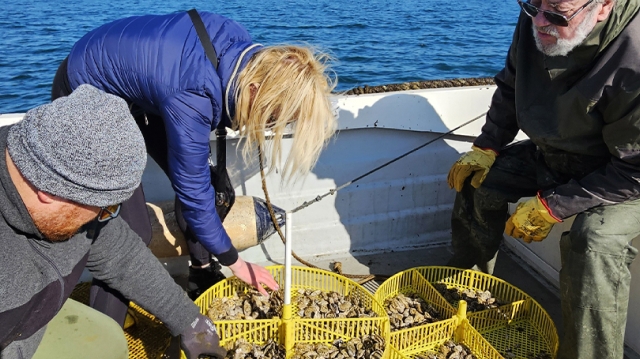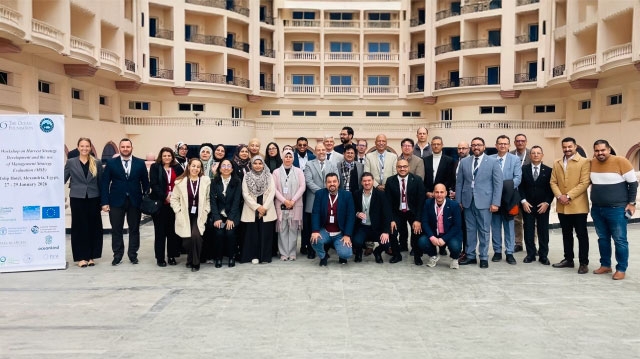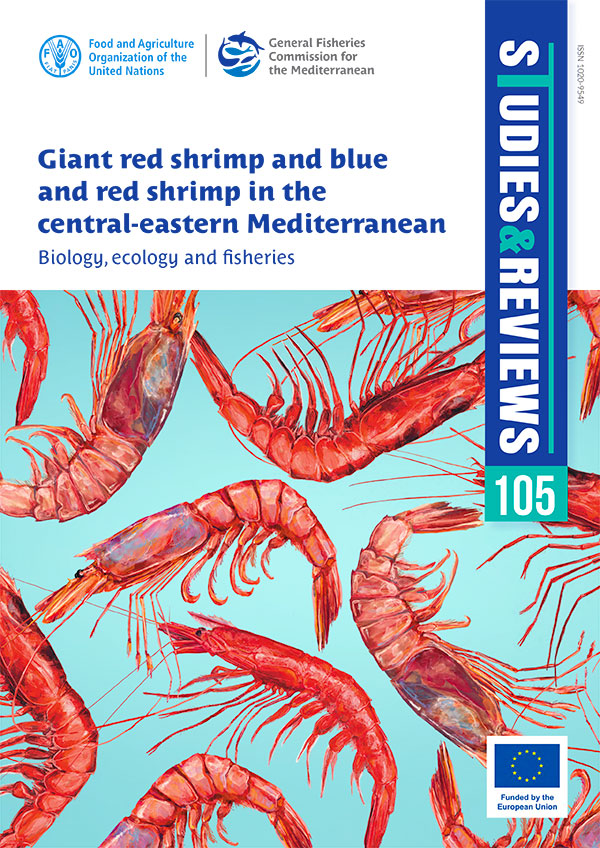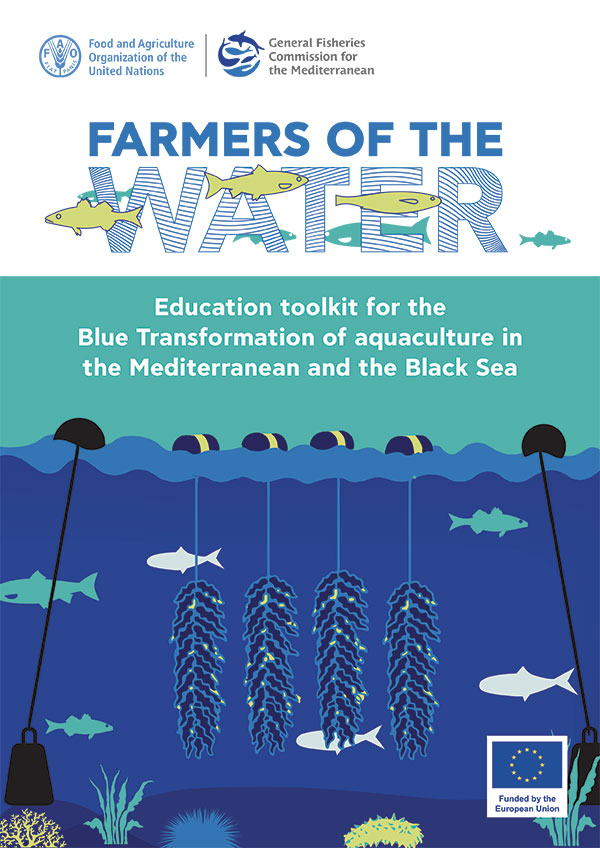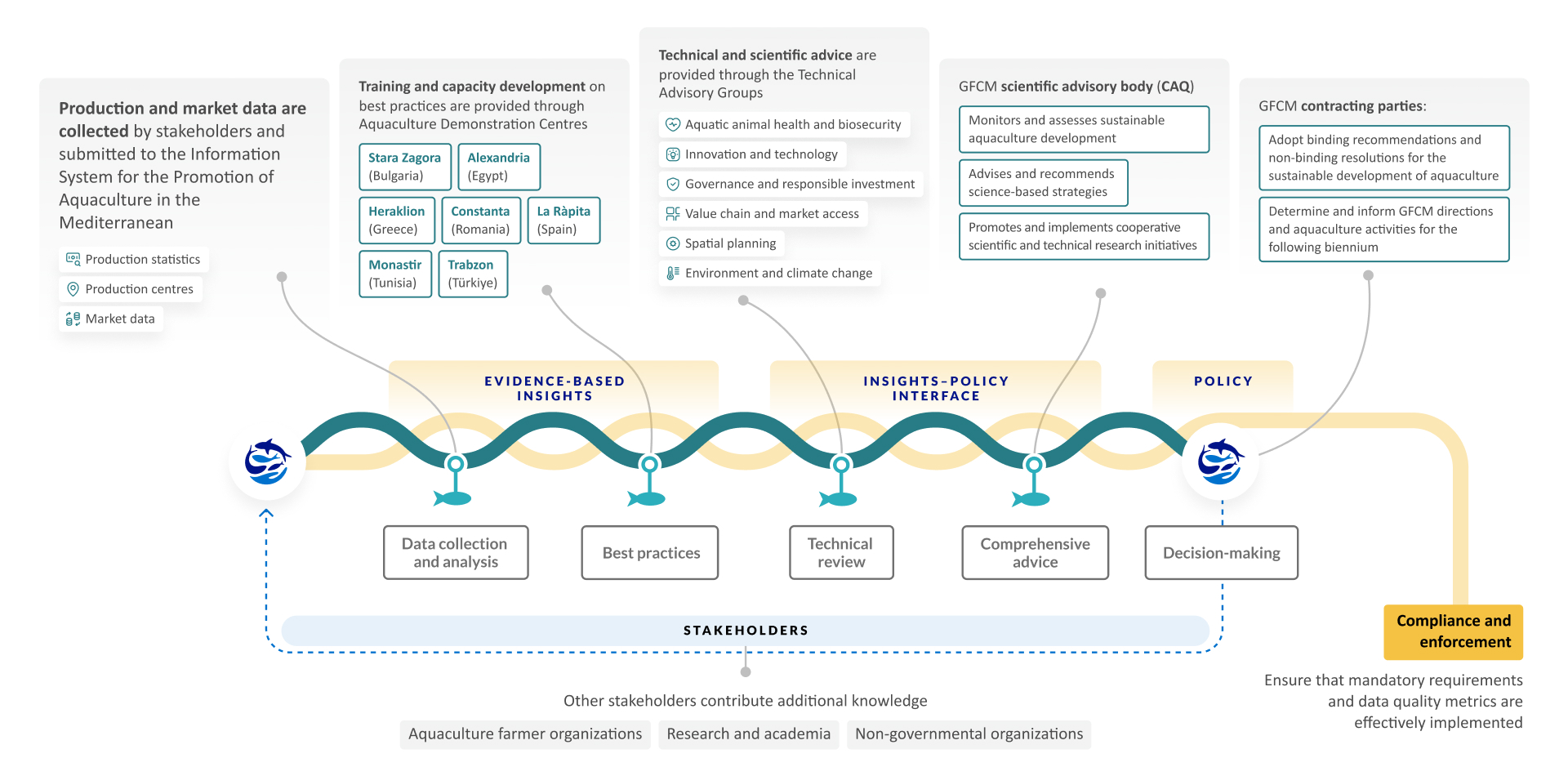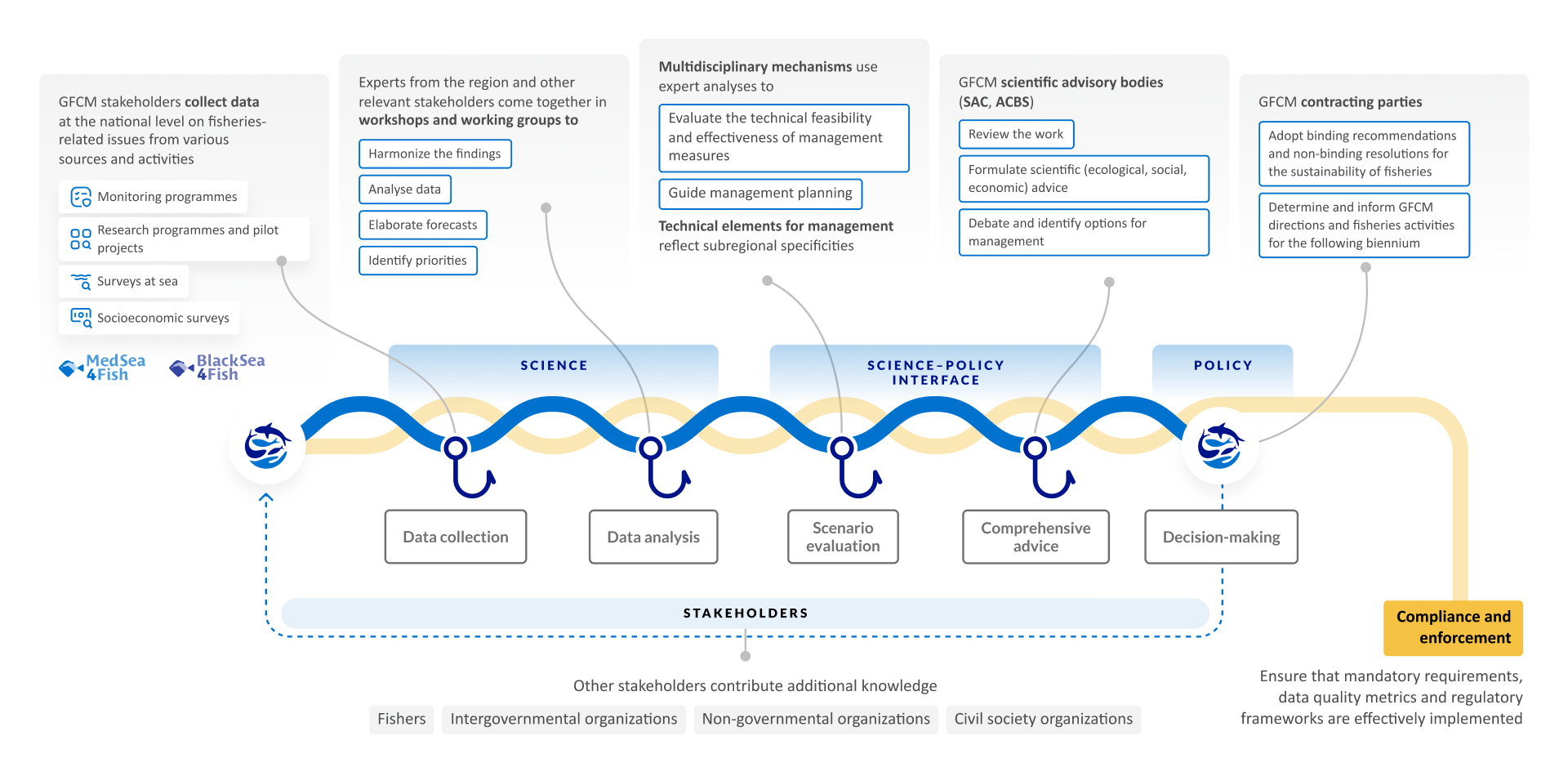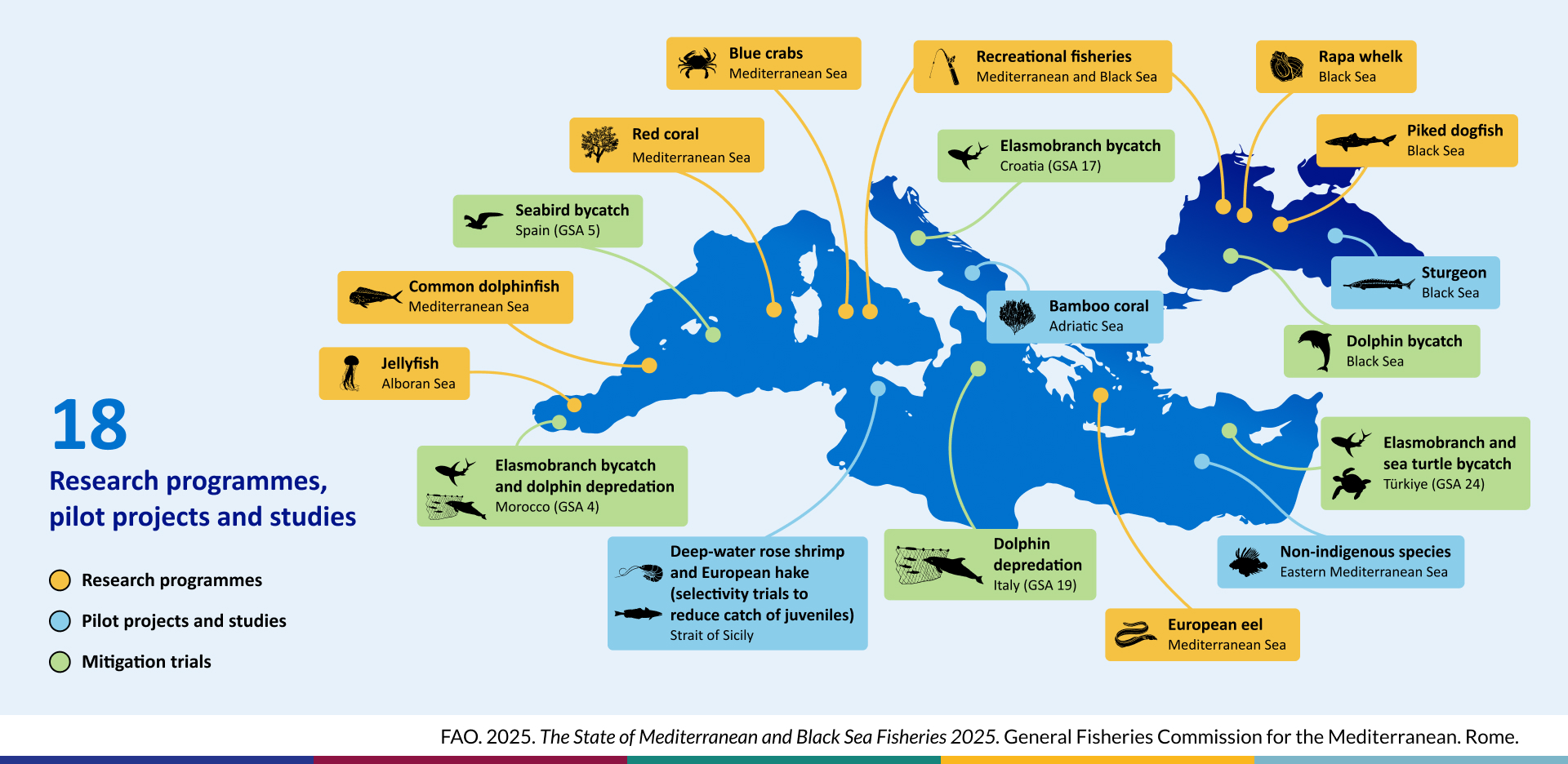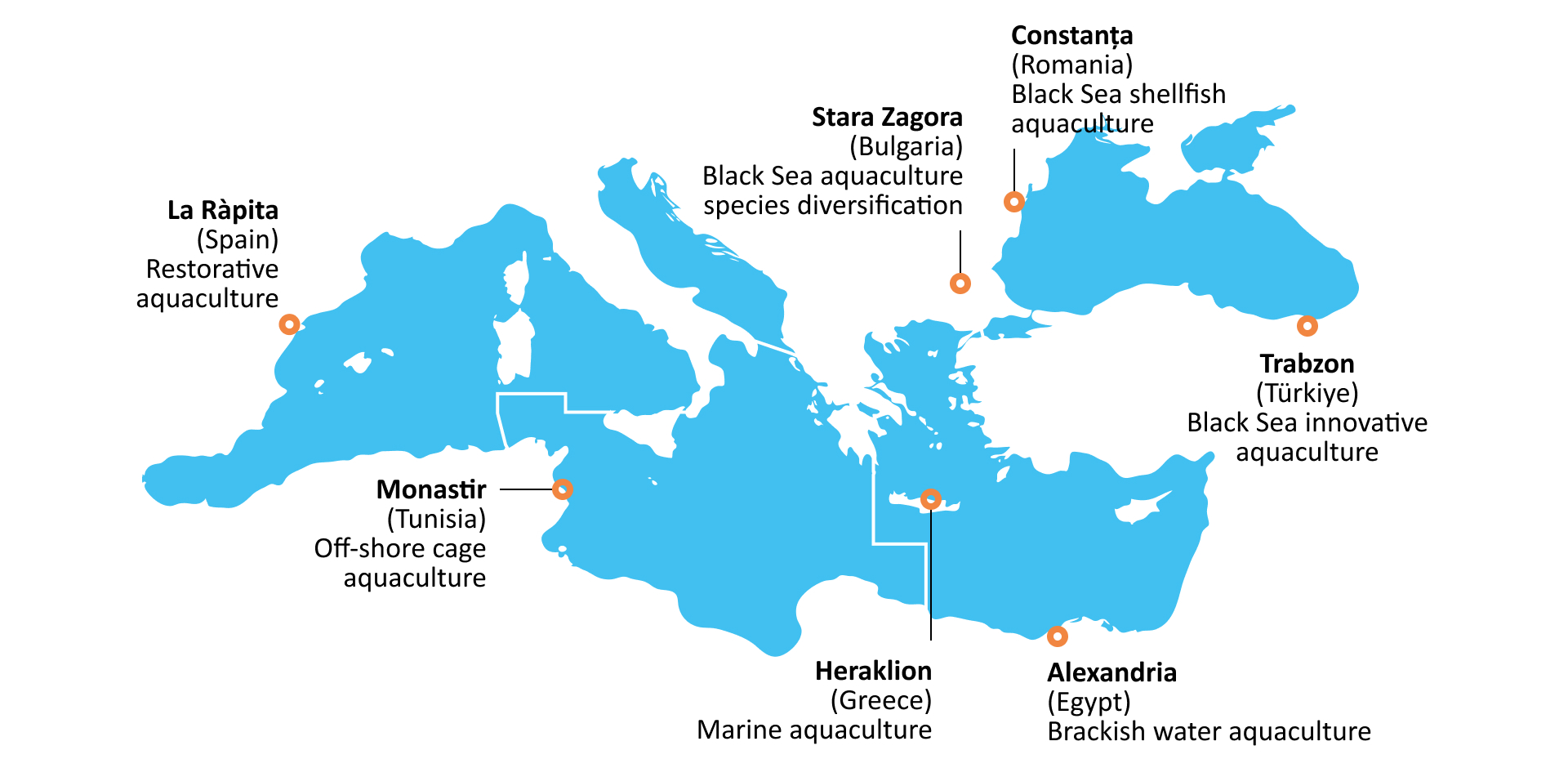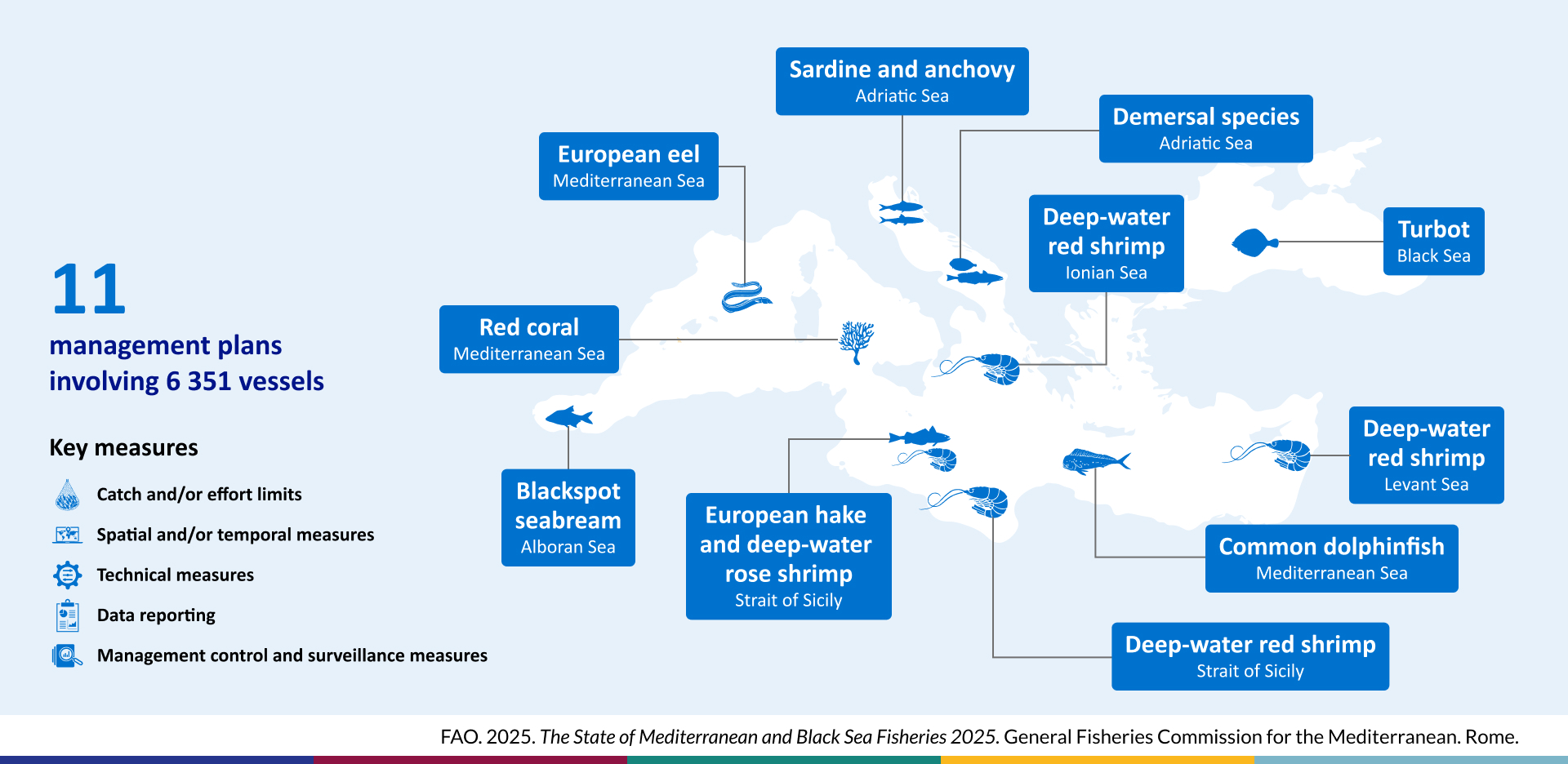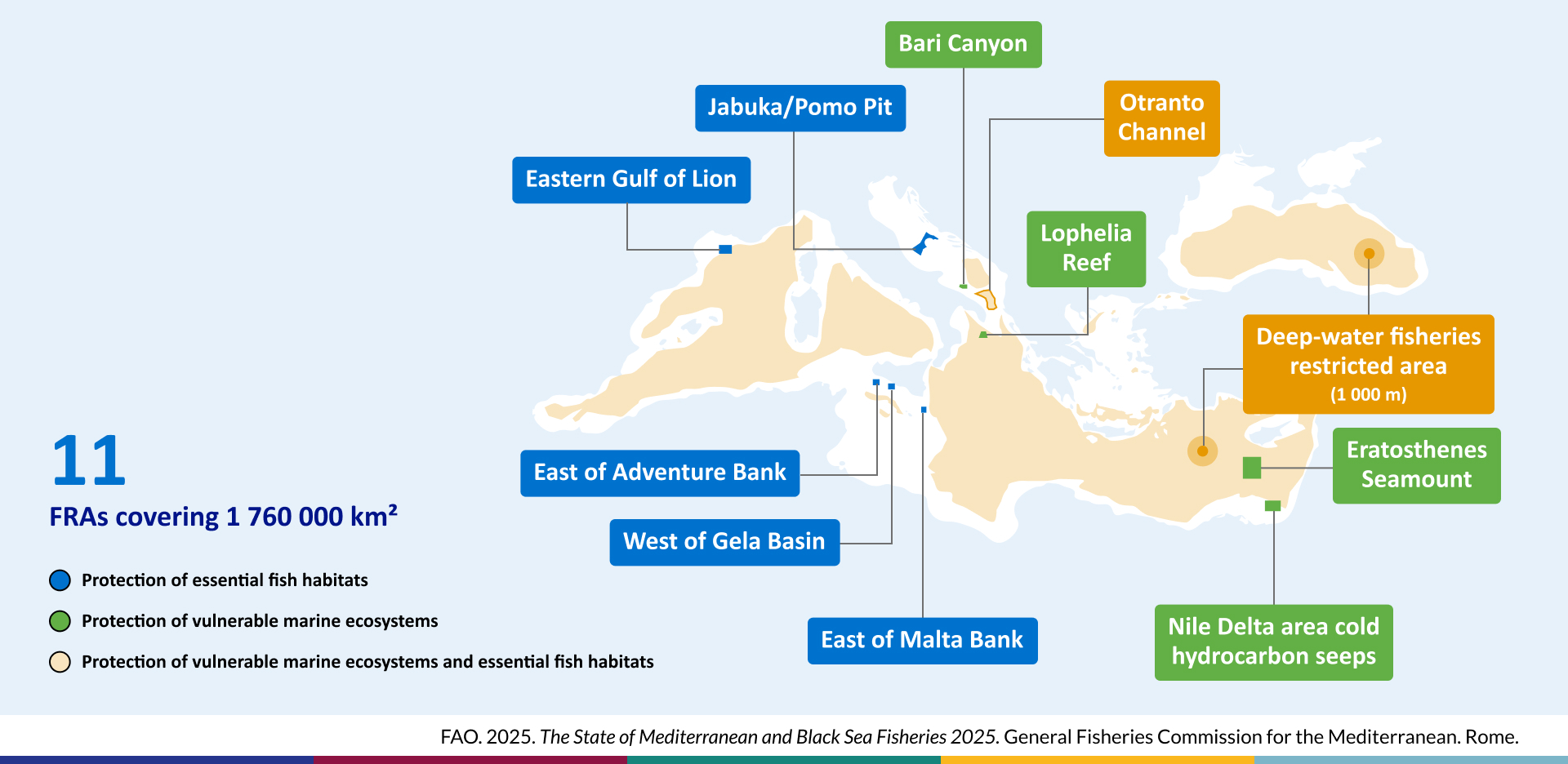News
In depth
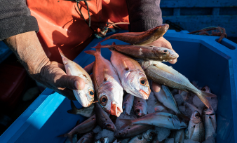
Sustainable fisheries
The GFCM adopts an integrated approach towards achieving maximum sustainably yields while ensuring livelihoods and addressing food production.
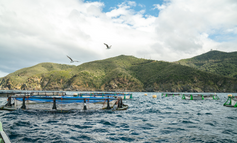
Sustainable aquaculture
The GFCM’s work towards blue transformation is helping to create a fair and sustainable sector that is productive, profitable and globally competitive.
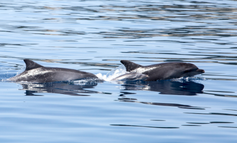
Healthy ecosystems
Productive fisheries and aquaculture operations require healthy seas, and conserving the marine environment is a central aspect of the GFCM’s work.
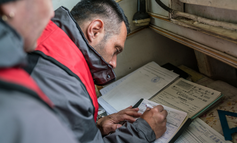
Effective compliance
The GFCM adopts binding
recommendations for fisheries
management and aquaculture
development in the region.

